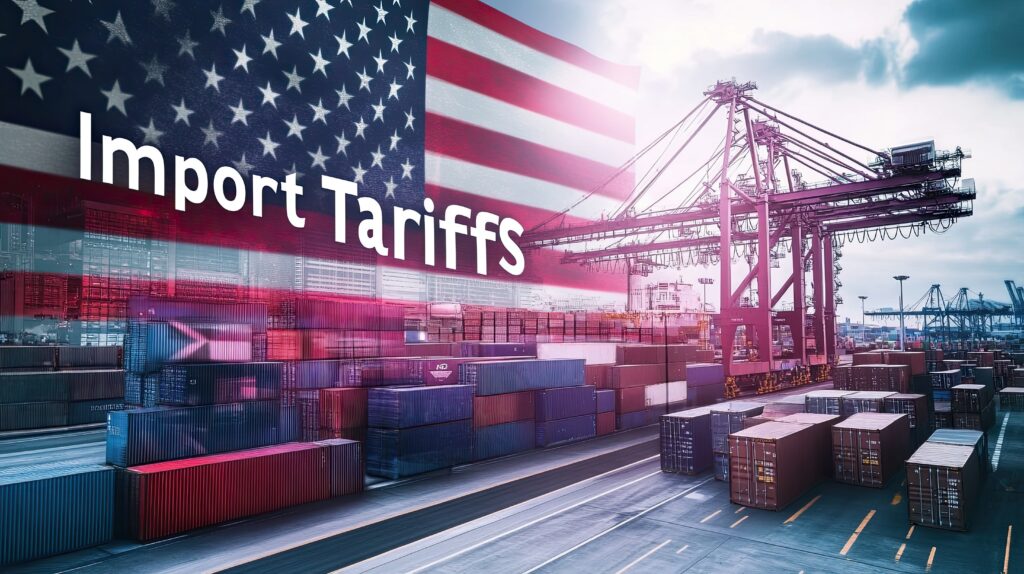
In July 2014, I outlined for readers a plan by Pat Buchanan to end the corporate income tax. Pat’s plan, or one like it, could revolutionize the American economy. I wrote:
Pat Buchanan suggests abolishing the corporate income tax and replacing it with a revenue-neutral 10% tariff on imports. Pat maintains that imports kill U.S. jobs and subtract from GDP. What, laments Pat, has our political class done to our once self-sufficient American Republic? Pat’s idea would give a huge boost to our economy. A flat 10% tax on corporate profits, personal income, and retail sales might face less severe headwinds in passing muster in Congress. Either concept would prove a valued tonic that all Americans could warmly embrace.
The tariff plan released by President Trump, with a 10% tariff on most countries and higher tariffs on countries with the largest trade deficits, is substantially similar to Pat’s plan from all those years ago.
President Trump has said a number of times that he’d like to replace the income tax with tariffs, but according to the Tax Foundation, that probably isn’t possible. Erica York and Huaqun Li write:
Even eliminating income taxes for a subset of taxpayers, such as those earning $200,000 or less, would require significantly higher replacement revenues than tariffs could generate. We simulated zeroing out positive tax liability for taxpayers earning under $200,000 without making any changes to tax credits (so, taxpayers could still qualify for refundable portions of tax credits but many would not benefit from non-refundable tax credits as they have zero tax liability to offset). We estimate it would reduce federal tax revenue by $737.5 billion in 2025 on a conventional basis. Over the 10-year budget window, it would reduce federal tax revenue by nearly $8.5 trillion on a conventional basis.
The tariffs Trump has imposed and scheduled as of April 2025 would generate nearly $167 billion in new tax revenue for the federal government in 2025 on a conventional basis, or less than 25 percent of the cost of eliminating income taxes for people earning below $200,000.
The Tax Foundation’s prediction of $167 billion in new revenue from tariffs suggests about $14 billion per month, on top of what was about $7 billion per month of tariff duties collected regularly. In May, the United States collected a total of $22 billion in customs duties (tariffs). Pulling out the $7 billion that was normal before Trump’s tariffs, that’s an additional $15 billion per month, or $180 billion per year. That’s already more than the Tax Foundation’s projection, and Trump hasn’t even instituted full tariffs on most countries. But this week, he announced that more tariffs are coming fast for countries that refuse to make trade deals. On August 1, tariffs on a number of countries will be raised from 10% to 25% or higher. Those countries include:
- Japan 25%
- South Korea 25%
- Malaysia 25%
- Kazakhstan 25%
- Tunisia 25%
- South Africa 30%
- Bosnia and Herzegovina 30%
- Indonesia 32%
- Bangladesh 35%
- Serbia 35%
- Cambodia 36%
- Thailand 36%
- Laos 45%
It remains to be seen just how high American tariffs on imports will be, and if trade deals are signed between Trump’s administration and foreign nations, perhaps there won’t be many tariffs at all. But it appears that revenues could be significantly higher than the original Tax Foundation prediction. And while probably not high enough to eliminate the individual income tax, perhaps, as Pat suggested, the corporate tax could be reduced drastically or even eliminated altogether.
In 2024, the United States collected just under $490 billion in corporate tax receipts. The annualized 12-month moving average of imports to America in May was $4.16 trillion.
So, how much would Trump have to charge on all those imports to generate enough to cover the corporate tax? First, I’ll back out $7 billion a month, so it’s only “new” customs duties being used. Once that’s factored in, replacing corporate taxes with tariff revenues would demand a 13.8% effective rate on all imports.
These are static numbers in a dynamic world, but as a thought experiment, it’s compelling. The idea of bringing the corporate tax rate to zero creates a host of new possibilities for job creation and innovation in the United States. Imagine how competitive American corporations could be when paying no taxes on their profits. The rate is slightly higher than Pat Buchanan was hoping for, but if he reads this, I don’t think he’ll grumble too much.
Pat wrote in one of his most read columns, in May 2019, titled Tariffs: The Taxes That Made America Great, “Of the nations that have risen to economic preeminence in recent centuries — the British before 1850, the United States between 1789 and 1914, post-war Japan, China in recent decades — how many did so through free trade? None. All practiced economic nationalism.”
Perhaps the elimination of the corporate tax rate could make American business great again.
Originally posted on Young’s World Money Forecast.




